AISA Karnataka Hosts Panel on ‘Operation Kagar’, Alleges State-Led War on Adivasis
Bengaluru, May 5: In a searing indictment of the Indian state’s ongoing security operations in tribal regions, the All India Students Association (AISA) Karnataka held a public discussion on “Operation Kagar,” labeling it the latest chapter in what they described as a “genocidal war” against the Adivasis of India. The event, held on May 5, featured leading activists and intellectuals who warned of a deepening crisis of democracy and human rights in India’s hinterlands.
Operation Kagar: A Continuation of Repression, Say Speakers
The discussion framed Operation Kagar as a successor to previous military campaigns such as Operation Green Hunt and Operation Samadhan Prahar. All these operations, speakers argued, have been carried out under the pretext of countering Maoist insurgency but have instead led to widespread violence, displacement, and resource exploitation in Adivasi territories.
“This is not a war against Maoists—it is a war on Adivasis, and ultimately, a war on democracy itself,” said Comrade Clifton D’Rozario, State Secretary of CPIML (Liberation). He emphasized the erosion of democratic space and the rise of state-sponsored violence in tribal areas. “This fascist machinery is being deployed to facilitate corporate plunder of jal-jangal-jameen (water-forest-land),” he added.
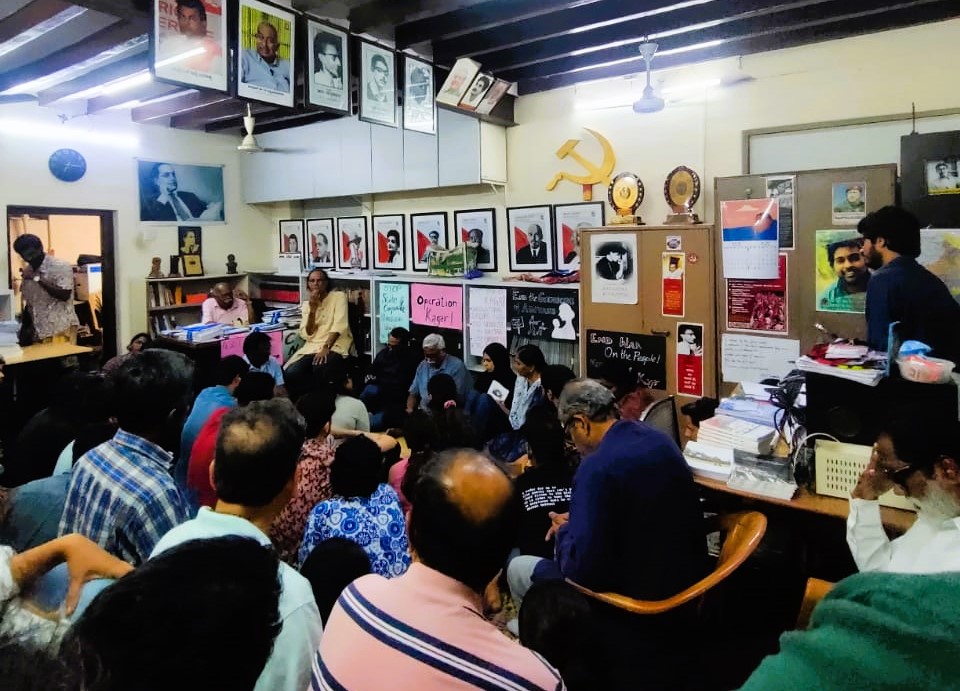
Root Causes Ignored: Poverty, Landlessness, and Displacement
V.S. Krishna of the Human Rights Forum traced the roots of the conflict back over five decades, critiquing the state’s continued framing of the Naxalite movement as a law-and-order problem.
“Since its inception, the government has refused to acknowledge this movement as a political response to structural poverty, landlessness, and the alienation of tribal people,” Krishna said. “Instead, it has unleashed brutal repression—rape, torture, burning of villages—often with the help of illegal militias like Salwa Judum.”
He called for a shift in the state’s approach from militarization to meaningful political engagement with the affected communities.
Gandhian Voices Turn to Radical Empathy
In a poignant moment, senior journalist and activist Comrade Shivasundar read a letter by Himanshu Kumar, a Gandhian activist based in Bastar. The letter expressed concern over reports that Maoist leader Hidma was encircled by paramilitary forces in the Karregutta hills.
“If Hidma is killed, who will defend the forests and the people?” Himanshu asked in the letter, drawing a striking parallel between Hidma and Birsa Munda, the 19th-century Adivasi freedom fighter. “The fact that a Gandhian is pushed to express solidarity with a Maoist leader reflects the desperation and lawlessness created by state actions,” Shivasundar noted.
AISA’s Demands: End Militarization, Start Dialogue
At the close of the discussion, AISA Karnataka reiterated its firm opposition to Operation Kagar and called for a shift from military confrontation to political negotiation.
In a strongly worded statement, AISA demanded:
-
An immediate halt to Operation Kagar
-
An unconditional ceasefire by the Indian state
-
Transparent and sincere peace talks with the Communist Party of India (Maoist)
-
An end to what they called the “corporatization-militarization nexus” in Adivasi areas
“Stop the loot of jal-jangal-jameen. Stop the war on Adivasis,” the statement concluded.
A Wider Crisis of Democracy
The panelists warned that the implications of Operation Kagar extend beyond Adivasi regions, reflecting broader trends of authoritarianism, suppression of dissent, and undermining of civil liberties across the country.
“There is an urgent need to build a broad united front of all democratic and Left forces,” Clifton D’Rozario urged. “The ideological and tactical differences with the Maoists must not hinder collective resistance to the authoritarian state.”
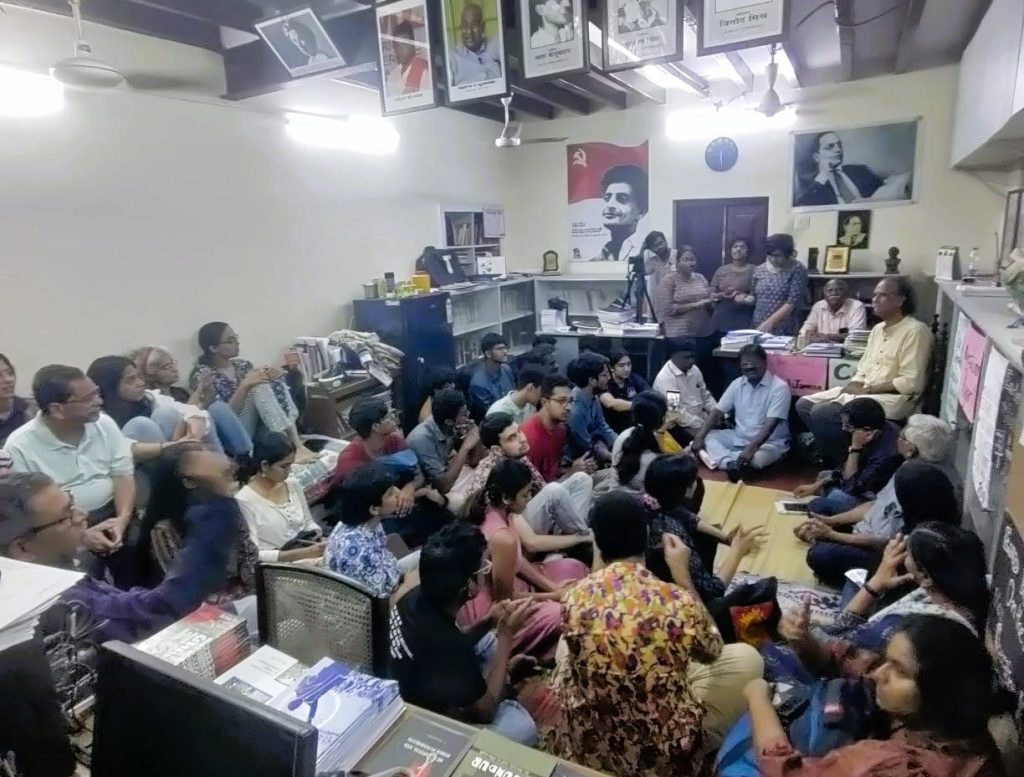
The discussion has added to growing calls for scrutiny of counter-insurgency strategies and their human cost, as civil society groups continue to raise the alarm over the deepening militarization of India’s tribal heartlands.
🗣 STATEMENTS
AISA Karnataka:
“We strongly condemn the Indian state’s continued war on Adivasis under the pretext of anti-Maoist operations. Operation Kagar is the latest assault on the democratic rights, lives, and lands of tribal communities. We demand an immediate and unconditional ceasefire and the initiation of sincere peace talks with the CPI (Maoist).”
Com. Clifton D’Rozario, CPIML (Liberation):
“This is not a war on Maoists—it is a proxy war on Adivasis. The state is using militarization as a tool to clear the way for corporate looting of forest and land resources.”
V.S. Krishna, Human Rights Forum:
“For over 50 years, the state has refused to address the political roots of the Naxalite movement. Instead, it has deployed violent repression to crush the voices of the oppressed.”
Com. Shivasundar, journalist and activist:
“When a Gandhian like Himanshu Kumar begins to see hope in a Maoist leader, it’s a damning reflection of how broken the system has become for Adivasis.”
💬 KEY QUOTES
“The real target of Operation Kagar is not insurgents—it’s India’s Adivasi communities and their right to live with dignity.” – Clifton D’Rozario
“Burning villages and deploying illegal militias cannot solve structural poverty and landlessness.” – V.S. Krishna
“If Hidma is killed, who will defend the forests and the Adivasi people?” – Himanshu Kumar (via letter)
“This is not just militarization, it’s the systematic erasure of democracy from India’s tribal belts.” – Shivasundar
❓ Q&A
Q: What is Operation Kagar, and why are you opposing it?
AISA: Operation Kagar is the latest military campaign in tribal areas under the guise of fighting Maoists. In reality, it displaces Adivasis, destroys villages, and clears the way for corporate exploitation. We see it as a war on democracy.
Q: Do you support Maoist violence?
Clifton D’Rozario: We do not support violence, but we refuse to ignore the political roots of this conflict. Our call is to stop the state’s war on Adivasis and begin a sincere political dialogue.
Q: Why compare Hidma to Birsa Munda? Isn’t that controversial?
Shivasundar: The comparison reflects the desperation of those who feel the state has failed to protect tribal rights. Even Gandhian activists are seeing resistance in a new light.
![]()

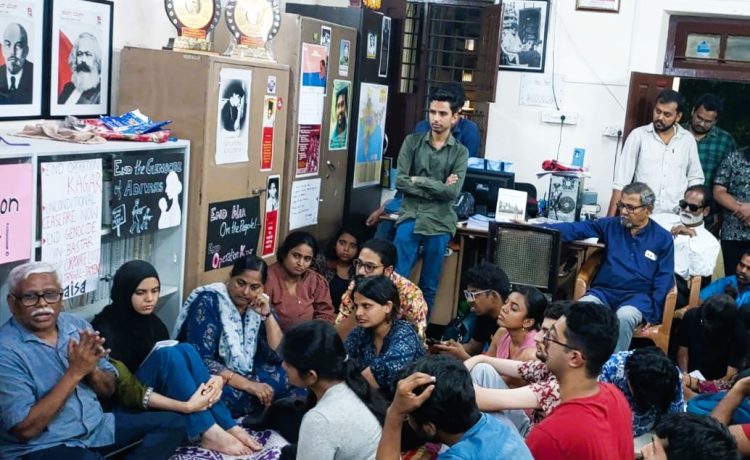

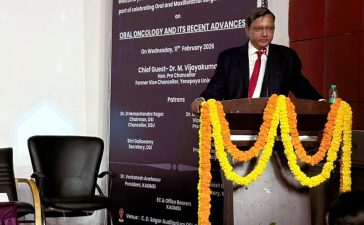

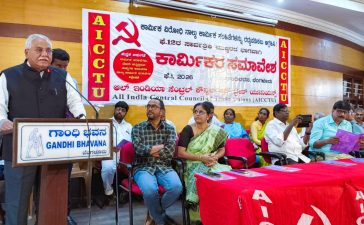
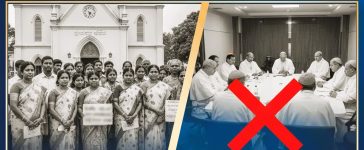





0b4tw5